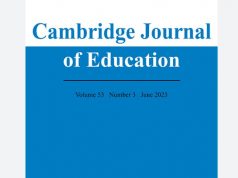UNESCO’s ‘Broadband Commission for Sustainable Development’ launched its report on ‘Digital Skills for Life & Work’ on 17th September in New York. The report – drafted by LNM’s Neil Selwyn – examines how the education sector can ensure that all people develop essential digital skills for life and work.

The report has already been discussed in the UK House of Lords, and marks a development in the way in which governments attend to the fast-changing nature of digital competencies and skills for all. As the UNESCO launch materials describe:
“The Report scans the globe for examples of innovative practice and finds that successful digital skills development depends on a number of factors – including strong government involvement, teacher training, the importance of multi-stakeholder collaborations and local engagement.
It directs special attention to the often-overlooked ‘soft’ skills required to thrive a technology-saturated world. These include understanding the implications of online activities; recognition of privacy considerations; knowledge of how to engage as responsible citizens in online environments; and awareness of how digital technology, big data and algorithms affect individuals and communities.
The Report offers a series of pointed policy recommendations and advises governments to maintain public involvement in digital skills development and redouble efforts to address inequalities in the provision of digital skills and competencies.
Included in the Report is a compendium of case studies illustrating successful examples of public and private sector working together in Africa, Asia, Europe and North America to ensure that all people have the skills and competencies they need to participate in the knowledge-based economy of the future.”







